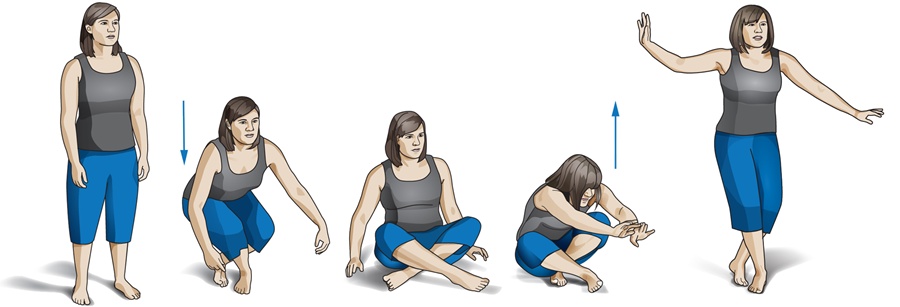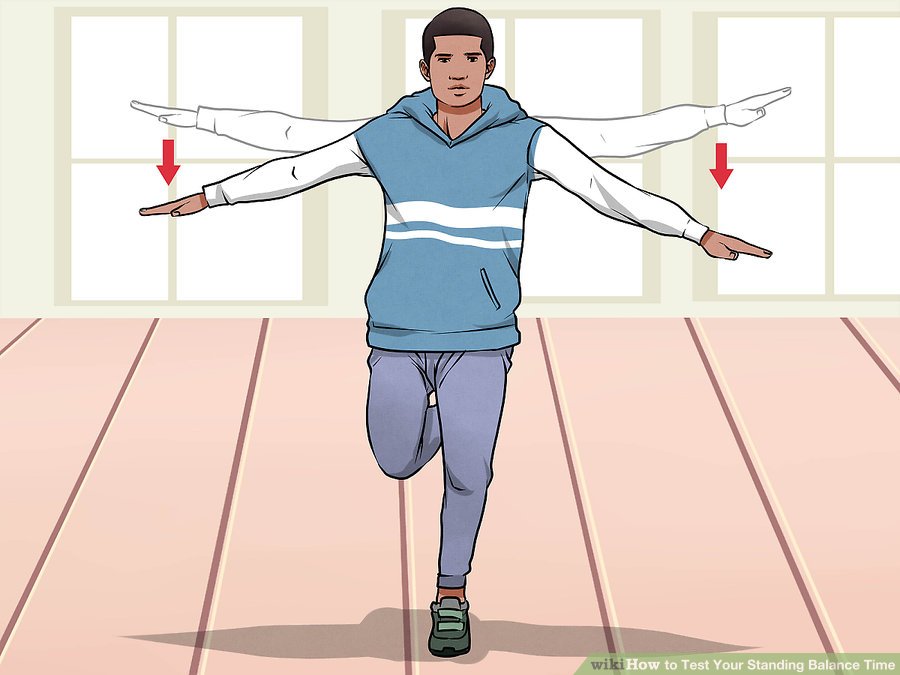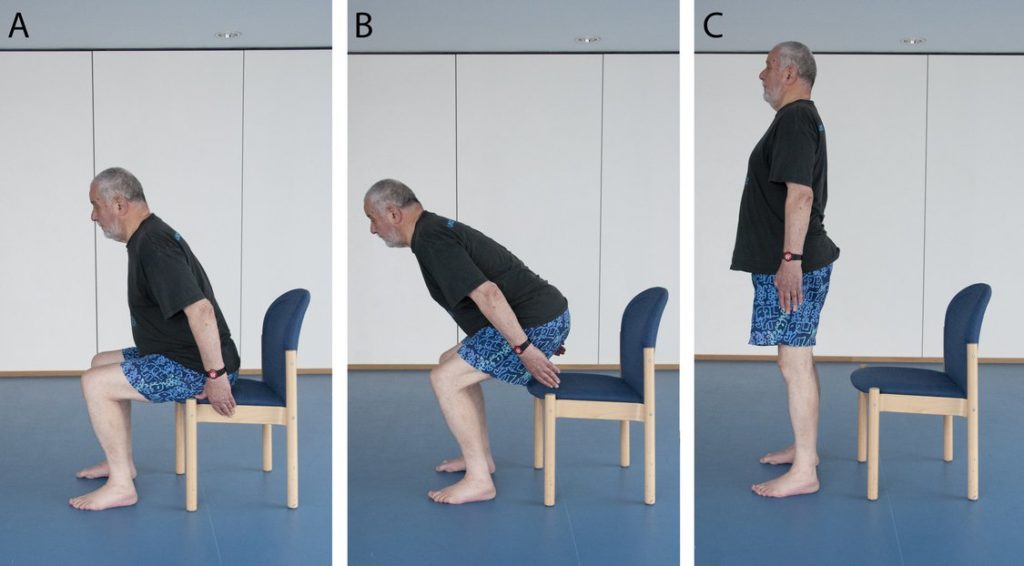Living longer and healthier is dependent on many factors that are out of our control, but there are a few of these factors that we do have control over and, with a little time and effort, can improve our chances of having quality of life as we age. The physical exercises that have been shown to correlate to longevity and improving our chances of healthy aging have mostly to do with balance and flexibility.
Here’s how you can determine your “longevity score” with some simple tests. Practice these exercises daily to improve your score and, (according to multiple studies), your chances of living a long and healthy life.
1. The Sit and Rise Test¹
Standing in bare feet, cross your legs, then sit down slowly without using your hands. Then, again without using your hands, stand back up.

Discovermagazine.com. Simple sitting test predicts how long you’ll live. 2014.
Scoring: You start with 10 points. You lose a point each time you use a hand or knee. You lose a ½ point if you wobble.
- 8 – 10 points means you are fit and fab and probably going to live a long, healthy life!
- 6 – 7.5 points means you have twice the chance of NOT living a long and healthy life
- 3.5 – 5.5 points means you have three and a half times the risk of NOT living a long, healthy life
A Brazilian study was conducted of over 2000 people between 50 and 80 years old. Participants’ health was followed up for a number of years. It was found that their initial score on this test was a powerful predictor of later health and how long they lived.
2. The Balance Test
The one-leg balancing test is proposed as a screening of the functional ability of the brain. A person should be able to maintain this balance for more than 20 seconds.

wikihow.fitness. How to test your standing balance time. 2019.²
Kyoto University researchers performed this test on 1,300 participants, both men and women, aged around 67 years. They were then tested for brain health. More than 30% of the subjects who had trouble balancing themselves for this length of time were found to have blood vessel disorders that can lead to stroke. The results were published Dec 2014 by the American Heart Association.
3. The Chair Test
Tests quadriceps strength, balance and endurance, all necessary for health and longevity.
Set a timer for 1 minute and stand in front of a chair. Sit down and stand up as many times as you can before the timer goes off.

www.nhs.uk. Strength exercises. 2017.³
- Men with the lowest risk of early death did more than 39 of these movements in a minute, while those with the highest risk did just 22 in a minute.
- The best performing women did more than 36 in a minute while the worst did just 21 in a minute. 4
In addition to balance and flexibility exercises, there is a growing body of evidence that aerobic exercise is very important for brain health and anti-aging.
A new study by researchers at the University of Wisconsin School of Medicine and Public Health has found that exercise can slow down or even stop the degenerative changes of Alzheimer’s Disease, even among those with high risk factors. They found positive changes in three of the factors that influence the decline in Alzheimer’s Disease, the formation of amyloid plaques, decrease in glucose uptake by neurons and shrinkage of the hippocampus, the memory center of the brain. Specifically, they found the people who exercised at moderate intensity at least 150 minutes per week showed reduction or no trace of these degenerative changes in the brain.
So get moving!
Sources:
- http://discovermagazine.com/2013/nov/05-sit-down
- https://www.wikihow.fitness/Test-Your-Standing-Balance-Time
- https://www.nhs.uk/live-well/exercise/strength-exercises/
- https://www.telegraph.co.uk/news/health/news/10796103/The-everyday-tests-to-predict-your-longevity.html
Remember, you can always reach out and schedule time with me. I am here to help you create your BEST LIFE from the inside out! Call (540) 899-9421 or email wholehealth.tina@gmail.com.

